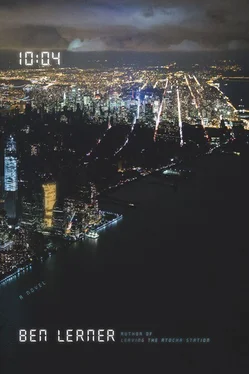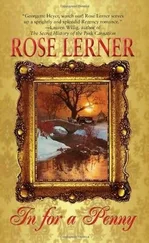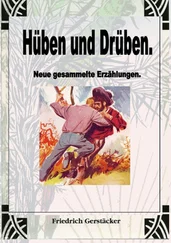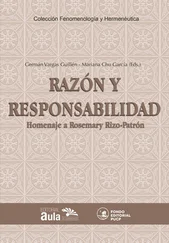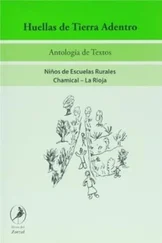When our coworkers had finally struck up their own conversations and forgotten about us, Noor picked up her narrative without my having to ask: So there we were at this French restaurant. As soon as the waiter had taken our order, Noor said to me, I said to my mom: You’re going to marry Stephen, aren’t you? and she laughed nervously and said that Stephen and she had in fact discussed marriage, that maybe that could happen someday, but that wasn’t why she had asked me to lunch, at which point I assumed that she was going to tell me she had cancer or something. But instead she said to me: Noor, your father and I made a decision when you were a baby and I’ve always wondered if it was the right decision but your father was sure and insisted that we had an agreement but since he’s died I’ve been thinking it over and now I feel that we were wrong. Your father, my mom said to me, Noor said, although not exactly in these words, was not your biological father. I got pregnant by another man but your father and I were in love and he wanted a child and so we got married, deciding that we would raise you as our child and that’s what we did and your father as you know loved you tremendously and thought of you as his own child always. There had been so much turmoil and cutoff and exile in his family I just think we wanted you to feel like you were fully our child, fully in your home. We fought a lot when you were in elementary school because I regretted not telling you, but at that point his position was that it was too late even if we had initially been wrong because you would feel betrayed and confused and it would be psychologically damaging. But in the last year I have been thinking about this constantly, Noor’s mother said to her, and thinking about my own mortality, and I just feel I have to tell you however disturbing this news might be. Also, I’ve been in therapy with someone who has helped me understand that telling you this is important for our own relationship. What I want to be clear about is that your father loved you as much as any father could love a daughter and whatever decision we made, rightly or wrongly, we made out of a sense of what would be best for you. She’d clearly memorized, Noor said to me, the last part of her speech.
“Jesus,” I said.
It gets crazier, Noor said, smiling. A waiter put a salad in front of me and I remember staring into the salad trying to take in what my mom had said as she waited for me to respond. I remember we were both sitting there in silence not eating, waiting for my response to form. I felt like I was bracing for some impact because I simply couldn’t feel anything and then my mom went on: Noor, she said, now more quietly, I imagine your first question is going to be who your biological father is — which actually was not my first question, Noor said to me — and part of why I wanted to tell you all of this, part of why it felt absolutely necessary, and part of why I’ve been so involved again, I think, with Stephen—
“Jesus,” I repeated. I was working as slowly as possible so as not to let finishing the mangoes interrupt the story again. Noor slowed down the rhythm of her work along with me, which led to her slowing down the story.
Right, Noor said to me. It’s because, my mom said, Stephen is your real dad, and then corrected herself: your biological father. I had dated him before I met your father and although it was clear to both of us that our relationship, at least our romantic relationship, wasn’t going to last, and even though we were being careful, I got pregnant and your father, I mean Nawaf — Nawaf was the name of the man I considered my father, Noor said to me, and it was horrible to hear my mom say his name, since she’d always said “your father” or “dad”—Nawaf wanted a child badly, Noor’s mother said to her, and we were falling in love and so we decided to get married and have a family. We told Stephen our plan and Stephen at that point in his life didn’t want anything to do with a child and he said he would respect our decision and that he wouldn’t ever say anything. And Stephen, as you know, eventually had his own family. It’s funny, Noor said to me, I still didn’t feel anything; I put my hands on the table on either side of my plate and I remember waiting and waiting for the impact and the only thing that happened is my hands seemed to fade.
“Fade?”
“I mean they started to pale,” Noor said, raising her gloved hands from her work as if to show me. “I had always thought of my skin as dark because my father’s skin was dark, because I took after him, because I was Arab-American, and as I sat there looking at my hands, without feeling anything, it was like I could see my skin whitening a little, felt color draining from my body, which it probably was because I was in shock, but I mean I started seeing my own body differently, starting with my hands.”
“What did you say to your mom?” I asked. Noor was olive-skinned. Did she look different to me now than earlier in our shift?
“I said that I had to go to the bathroom and just walked right out of the restaurant. It was kind of funny,” Noor laughed, “that I told her I had to go to the bathroom, since she could just see me walk right out of the front door, it wasn’t like she thought I was coming back. Anyway”—Noor’s tone shifted a little, indicating she was going to draw her story to a close—“you had asked me about my family in Lebanon — it’s complicated now because I don’t know if I can call them my family, exactly.”
“Do they know the story?” I asked.
“Not unless my dad told them, which I can’t imagine him doing. My mom doesn’t think so.”
“Did you see them when you were living in Cairo?”
“I didn’t end up going anywhere. I spiraled into a big depression and when I finally climbed out of it I applied to grad school and moved here.”
“Do you”—I wasn’t sure how to put the question—“do you still consider yourself Arab-American?”
“When I’m asked, I say that my adoptive father was Lebanese. Which I guess is true. I still believe all the things that I believed; it hasn’t changed my sense of any of the causes. But my right to care about the causes, my right to have this name and speak the language and cook the food and sing the songs and be part of the struggles or whatever — all of that has changed, is still in the process of changing, whether or not it should. Like, somebody wanted me to give a talk at Zuccotti Park about Occupy’s relation to the Arab Spring and I didn’t feel qualified, so I said no. There are a lot of people I haven’t been able to bring myself to tell because, even if they don’t want to, they’ll treat me differently— I treat me differently.”
“I can’t imagine what any of this must have felt like, must feel like,” I said. I wanted to say that it’s not the sperm donor that matters, that the real father is the man who loved and raised her, but before I could figure out how to articulate my position tactfully, I was distracted by a vision of Alex in the future, falling in love with someone, maybe moving out of the city with “our” child. Would I be thought of as the father? Just a donor? Not at all?
Since she’d fallen quiet, and I felt I should fill the silence, I opted to say something vague about the connection between storytelling and manual labor, how the latter facilitates the former, the work creating a shared perceptual pattern, but the way she nodded indicated she’d ignored me.
“A lot of the time I still feel like I’m waiting for the impact, feel the same way I felt at the restaurant. My mom and Stephen live together now, by the way. They didn’t marry. We’re all trying to work things out. What I would say is that it’s a little like — have you ever kept talking to somebody on your cell phone not realizing the call was dropped, gone on and on and then felt a little embarrassed?”
Читать дальше
